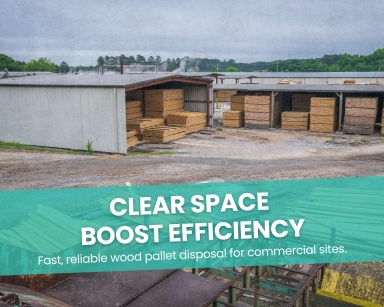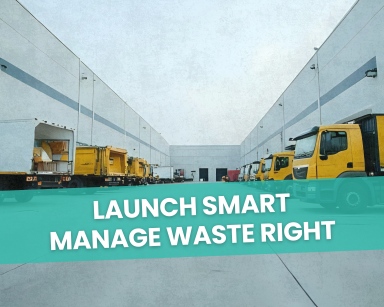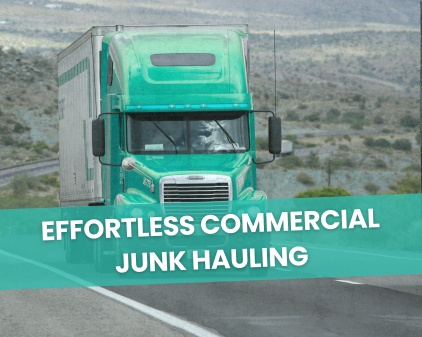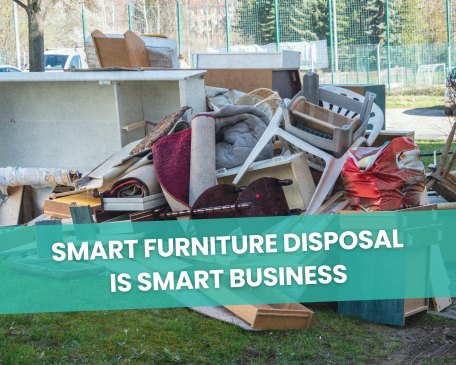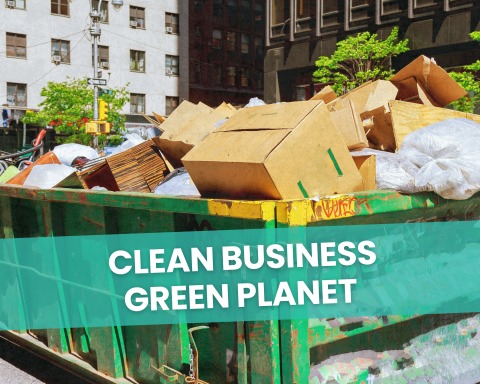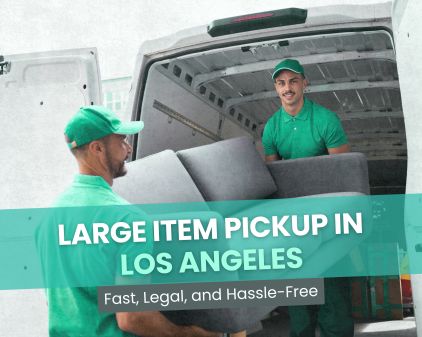Strategies to Reduce Organic Waste: Achieve SB 1383 Compliance
Table of Contents
Ca Sb 1383 Compliance: Strategies To Reduce Organic Waste
Every day, Californians throw away large amounts of food scraps, yard trimmings, and paper, contributing to the state’s methane emissions. This gas is 84 times more potent than carbon dioxide, posing a major climate threat. The effects are palpable: summers grow hotter, wildfires rage with greater fury, and the ocean edges ever closer. Yet, within this challenge, lies an opportunity. With Senate Bill, SB 1383, California has set an ambitious goal: reduce organic waste disposal by 75%.
This is a tale of not just waste but transformation. It’s more than compliance; it’s finding solutions to challenges. For businesses, from grocery to restaurant chains and the hospitality sector, it’s about turning waste into value. Now, let’s dive deeper into this transformative journey and explore how businesses can leverage this opportunity.
What Is Sb 1383: The History and Purpose
In 2016, the climate crisis prompted Governor Edmund Brown Jr. to enact SB 1383, creating a groundbreaking blueprint to tackle methane emissions and organic waste. SB 1383 was instigated as part of California’s dedicated efforts to decrease short-lived climate pollutants.
The law outlined aggressive targets to:
- Curtail organic waste disposal by 75%
- Rescue at least 20% of currently disposed surplus food by 2025
The urgency behind these targets: Organic waste in landfills constitutes 20% of the state’s methane, a potent greenhouse gas linked to health conditions like asthma.
The law introduced the state’s first mandatory commercial organics recycling, prohibiting businesses from discarding organic waste in the trash.
The Technicalities of SB 1383
To grasp SB 1383 fully, one must first understand how jurisdiction is defined. In this context, a jurisdiction refers to a city, county, or special district that provides solid waste collection services.
Under SB 1383, all jurisdictions must offer organic waste collection to residents and businesses by 2022. This includes food, yard waste, textiles, paper, and sludges.
The aim is to convert this waste into compost, mulch, and renewable energy using methods like anaerobic digestion.
SB 1383’s Implementation Timeline
The journey to implementing SB 1383 began on January 1, 2022, when the regulations took effect and state enforcement began. Local government enforcement will kick in starting January 1, 2024. Understanding the effective date of SB 1383 and the local government’s role can help businesses comply on time.
Organic Waste Management Under the Bill
Managing organic waste under SB 1383 involves more than just reducing the waste. It requires converting the waste into green products and energy, a process which not only aligns with waste management sb1384 but also creates new resources.
The transformation of organic waste into compost, mulch, and renewable energy has multiple environmental and economic benefits and is a cornerstone of the sb1383 compliance. Here are some ways that organic waste can be managed to meet the requirements of sb1383:
- Composting: The transformation of organic waste into nutrient-rich fertilizer which can be used for plants and gardens. For example, food scraps and yard trimmings can be composted to create fertilizer for residential lawns or community gardens.
- Anaerobic Digestion: This process uses bacteria to break down organic waste into methane gas, which can then be used to generate electricity or for other purposes. An example of this process is the use of cow manure to produce methane-rich biogas.
- Biogasification: This process uses heat and pressure to break down organic material into gasses that can be used for cooking or to generate electricity. It produces less greenhouse gas emissions than other forms of energy production as it does not require burning fossil fuels.
- Construction Waste Management: The majority of construction projects generate large amounts of organic waste. By implementing proper waste management strategies such as composting, recycling, and reusing materials on site, construction sites can reduce their organic waste and help meet the requirements of sb1383.
By taking a comprehensive approach, businesses and communities can help reduce the amount of waste sent to landfills and ensure that they comply with sb1383. A win-win for the environment and the economy.
Food Recovery: An Integral Aspect of SB 1383
Food recovery forms a critical part of SB 1383. The law mandates food donors to maximize the amount of their edible food that would otherwise be disposed. Food donors must establish contracts or written agreements with food recovery organizations and services to ensure maximum recovery.
This process, facilitated through tools like the Model Food Recovery Agreement and the California Food Bank Locator Tool, plays a key role in meeting the SB 1383 compliance requirements.
Scenario:
Let’s assume a large grocery retail store is tasked with the responsibility of recovering its otherwise edible food. To meet SB 1383 requirements, the store must form contracts or written agreements with local food recovery organizations and services to ensure maximum food recovery.
Ensuring Compliance with SB 1383
To ensure compliance with SB 1383, businesses must understand the requirements for record-keeping and reporting. These include information on contracts or written agreements with food recovery organizations, schedules for food donation deliveries, and the quantity of food donated.
It’s also important to be aware of department-issued waivers and exemptions under SB 1383 regulations.
Effective ways to ensure compliance with SB 1383
- Develop clear policies and procedures for food donation to a food recovery organization or charitable institution.
For example, this could include providing information about which types of food can be donated, how often donations should occur, and how much food should be donated.
- Establish an internal tracking system to document all donations, including the date of donation, type of food donated, quantity donated, and recipient’s contact information.
This can help your organization track donations and ensure compliance.
- Have staff complete documentation accurately and on time.
For example, staff should document the type and quantity of food donated, as well as the date and recipient’s contact information. This document needs to be kept up until the end of the year for SB 1383 compliance.
- Conduct periodic audits to verify accurate record-keeping and reporting.
For example, an audit can be conducted to review contracts with food recovery organizations and schedules for food donation deliveries.
- Make sure all necessary documents are filed with the local health department as required by law.
That is because the documents provide evidence that a business is actively participating in food recovery programs and donating food to appropriate organizations.
- Monitor any changes in SB 1383 regulations and review existing processes for compliance.
Why? Because regulations are subject to change and businesses should stay on top of updated requirements.
- Ensure that all food donations meet safety standards before donating them to a food recovery organization or charity institution.
In case of doubt, contact the local health department for guidance.
By following these steps, businesses can confidently say they are in compliance with SB 1383 and can take full advantage of the benefits it offers.
The Impact of SB 1383
The impact of SB 1383 can be seen in how California has already cut 2 million tons of organic waste before the law even took effect. Future goals and challenges of SB 1383 implementation include continuing to cut organic waste and bolster the number of organic waste processing facilities.
Future Goals of SB 1383 Implementation
- Further reduction of organic waste: The state aims to continue its work in significantly cutting down on organic waste, aiming for a 75% reduction by 2025.
- Bolstering organic waste processing facilities: An important aspect of handling organic waste is having the necessary infrastructure in place. The goal is to continue increasing the number of these facilities in order to effectively process the waste.
- Increasing edible food recovery: In a bid to tackle food waste, another goal of SB 1383 is to recover 20% more edible food by 2025.
These efforts are already showing promising results, with 206 organic waste processing facilities in place and 20 more being built.
Challenges of SB 1383 Implementation
- Infrastructure capacity: While progress has been made with 206 organic waste processing facilities and an additional 20 under construction, ensuring these facilities can meet the increasing demand efficiently is a challenge.
- Compliance: Ensuring that businesses, municipalities, and individuals across the state adhere to the new laws and regulations introduced under SB 1383 can be difficult.
- Public awareness and behavior change: One of the biggest challenges is educating the public about the importance of organic waste reduction and changing behaviors to support these initiatives.
Practical Tips for Businesses
For businesses seeking to comply with SB 1383, understanding and adhering to procurement requirements is crucial. This includes using recycled organic products wherever possible.
To ensure compliance with SB 1383, businesses can adopt these unique practical strategies:
- Understand Local Waste Regulations: Research your local municipality’s waste reduction goals and policies. This knowledge will ensure that you’re meeting the specific requirements of SB 1383.
- Use Certified Compostable Products: If applicable to your business, utilize certified compostable products, typically made from plant-based materials. This can aid in meeting the recycled organic material diversion requirements of SB 1383.
- Reduce Waste with Reusable Containers: Reusable containers not only reduce waste but can also increase your business’s efficiency.
- Invest in Energy-Efficient Appliances: This strategy can help further decrease waste and promote sustainability.
- Partner with Local Entities: Work with local farmers and businesses to recycle organic waste.
- Promote Sustainability: Highlight your sustainable practices to customers, vendors, and employees to increase visibility and awareness.
- Reduce Packaging Material: Look for ways to minimize packaging materials, especially for shipping and delivery services.
- Green Takeout Services: Use compostable bags or other certified green materials for takeout services.
- Maintain Compostable Waste Containers: Regular cleaning and maintenance of compostable waste containers are crucial to ensure proper usage and avoid contamination.
These practical strategies can help businesses ensure compliance with SB 1383 while promoting sustainability.
The Bottom Line
In conclusion, California’s SB 1383 law represents a significant step forward in the fight against climate change. By understanding and complying with the SB 1383 regulations, businesses can contribute to a greener California while also staying on the right side of the law. The future of organic waste management in California is already here, and it offers a model for sustainable growth that other states and countries can learn from.


